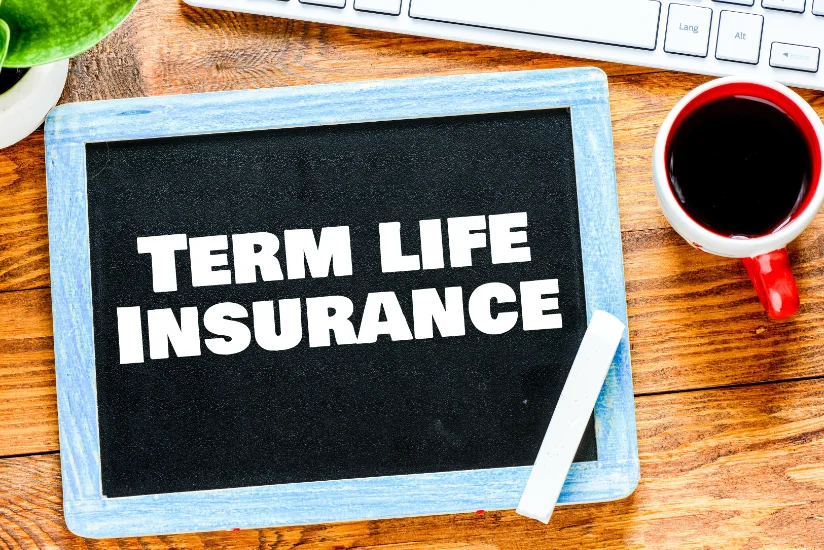- Introduction
- What Is Term Insurance?
- How Term Insurance Works in Singapore
- Benefits of Term Insurance
- Drawbacks of Term Insurance
- Term Insurance vs Whole Life Insurance
- Who Should Buy Term Insurance in Singapore?
- How Much Term Insurance Coverage Do You Need?
- Common Questions About Term Insurance (FAQ)
- Best Term Insurance Plans in Singapore (2025 Snapshot)
- Conclusion
Introduction
If you’ve ever wondered “What is term insurance, and do I need it in Singapore?” — you’re not alone. Many Singaporeans are confused about the difference between term insurance and whole life insurance, and which one is better.
The truth is: term insurance is one of the most affordable and straightforward ways to protect your loved ones financially. This beginner’s guide will explain how it works, its pros and cons, and how to decide if it’s right for you.
What Is Term Insurance?
Term insurance is a type of life insurance that provides coverage for a fixed period of time — usually 5, 10, 20 years, or until age 65/70.
- If the insured passes away (or suffers total permanent disability, depending on the plan) during the policy term, the insurer pays out a lump sum benefit.
- If the insured outlives the policy, there is no payout and the policy simply ends.
Unlike whole life insurance, term plans do not have a savings or investment component. This makes them much more affordable, while still offering high coverage.
How Term Insurance Works in Singapore
Here’s a simple breakdown:
- Premiums: Lower than whole life insurance. Premiums are level during the term but rise if you renew at an older age.
- Policy Duration: Choose a fixed term (e.g. 20 years) or up to a certain age.
- Coverage Types:
- Death coverage (basic)
- Total and Permanent Disability (TPD)
- Critical Illness (CI) riders (optional)
- Payout: A lump sum goes to your beneficiaries to cover debts, living expenses, or children’s education.
💡 Example: A 30-year-old non-smoker might pay around $40–$50 per month for $500,000 coverage for 20 years — much cheaper than whole life insurance.
Benefits of Term Insurance
- Affordable premiums – Get high coverage for low cost.
- Flexibility – Choose how long you need coverage (e.g. until your children are financially independent).
- Pure protection – No complicated investment features, just straightforward insurance.
- Peace of mind – Protects your family from financial hardship if anything happens to you.
Drawbacks of Term Insurance
- No cash value – If you outlive the policy, there’s no payout.
- Premiums increase with age – Cheaper when you’re young, more expensive later.
- Coverage ends with the policy – You must renew or buy a new plan if you want continued protection.
Term Insurance vs Whole Life Insurance
| Feature | Term Insurance | Whole Life Insurance |
| Premiums | Lower | Higher |
| Coverage Period | Fixed term (e.g. 20 years) | Lifetime |
| Cash Value | None | Yes (savings/investment) |
| Best For | Income protection, mortgages, family needs | Legacy planning, wealth transfer |
💡 Rule of thumb: Use term insurance for protection, and whole life if you also want long-term wealth transfer.
Who Should Buy Term Insurance in Singapore?
- Young professionals who want affordable coverage while starting out.
- Parents with young children who depend on their income.
- Homeowners with mortgages who want to ensure the loan is covered.
- Anyone looking for cost-effective protection without committing to high premiums.
How Much Term Insurance Coverage Do You Need?
A common rule: 9–10 times your annual income.
Example:
- Annual income: $100,000
- Coverage needed: $1,000,000
Also consider:
- Outstanding housing loans
- Children’s education costs
- Living expenses for dependents
Common Questions About Term Insurance (FAQ)
1. Is term insurance worth it in Singapore?
Yes. It’s one of the cheapest ways to get high coverage, especially if your priority is protecting your family.
2. How much does term insurance cost?
Premiums vary by age, health, gender, and coverage amount. A healthy 30-year-old might pay $40–$60/month for $500,000 coverage.
3. Can I convert term insurance to whole life later?
Some insurers allow conversion without medical underwriting. Always check before buying.
4. What happens if I outlive my policy?
The policy ends, and there’s no payout. You can choose to renew or buy another plan if needed.
5. Which is better: term insurance or mortgage insurance?
Both cover debts, but term insurance is more flexible — you can use the payout for any purpose, not just your loan.
Best Term Insurance Plans in Singapore (2025 Snapshot)
(For illustration only — not financial advice)
- Singlife Term Life – Customisable coverage, renewable and convertible.
- Great Eastern GREAT Term – Wide range of riders including CI.
- AIA Secure Term Plus II – Option to convert to whole life later.
⚠️ Disclaimer: Information is for general education. Always compare across insurers or speak with a licensed financial adviser for personalised recommendations.
Conclusion
Term insurance is a simple, affordable, and essential protection tool. It doesn’t build wealth, but it ensures your family is financially secure if the unexpected happens.
If you’re unsure how much coverage you need, or which plan suits you, consider consulting a licensed financial adviser who can tailor a solution based on your income, dependents, and long-term goals.


